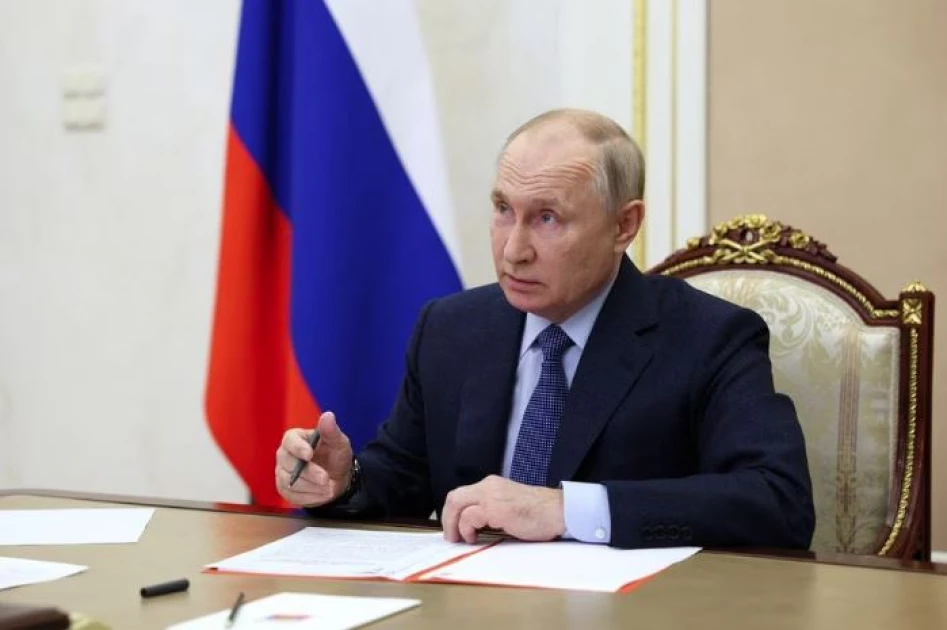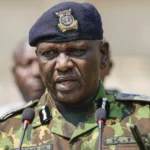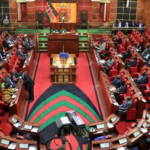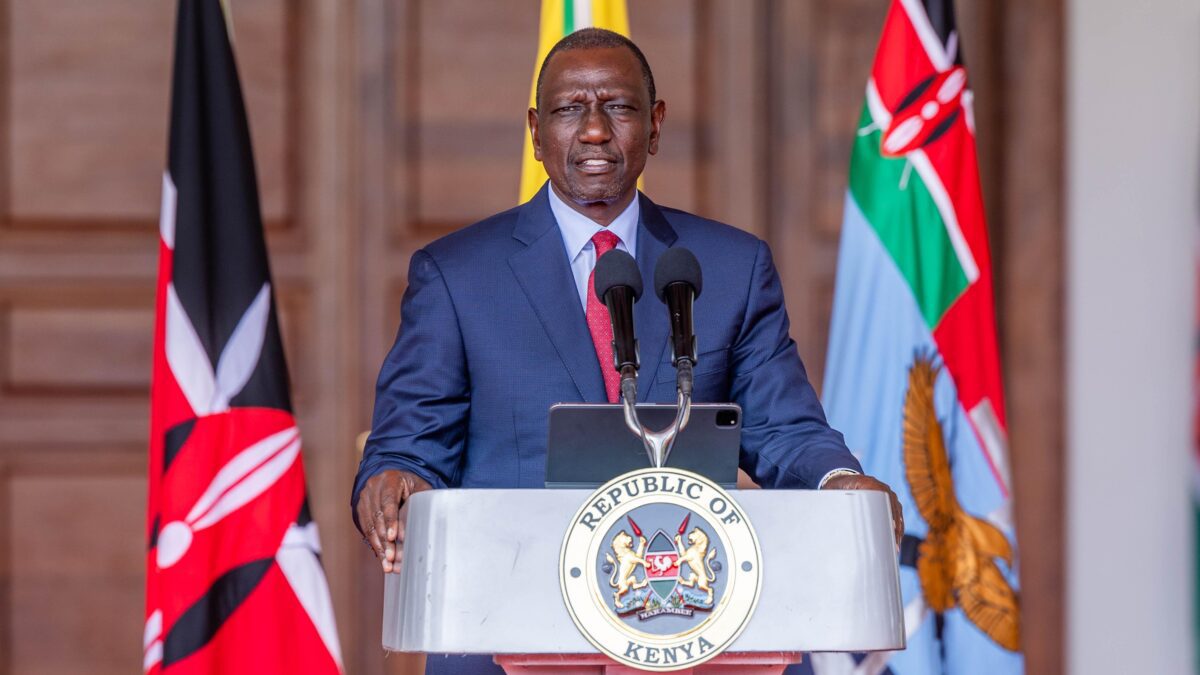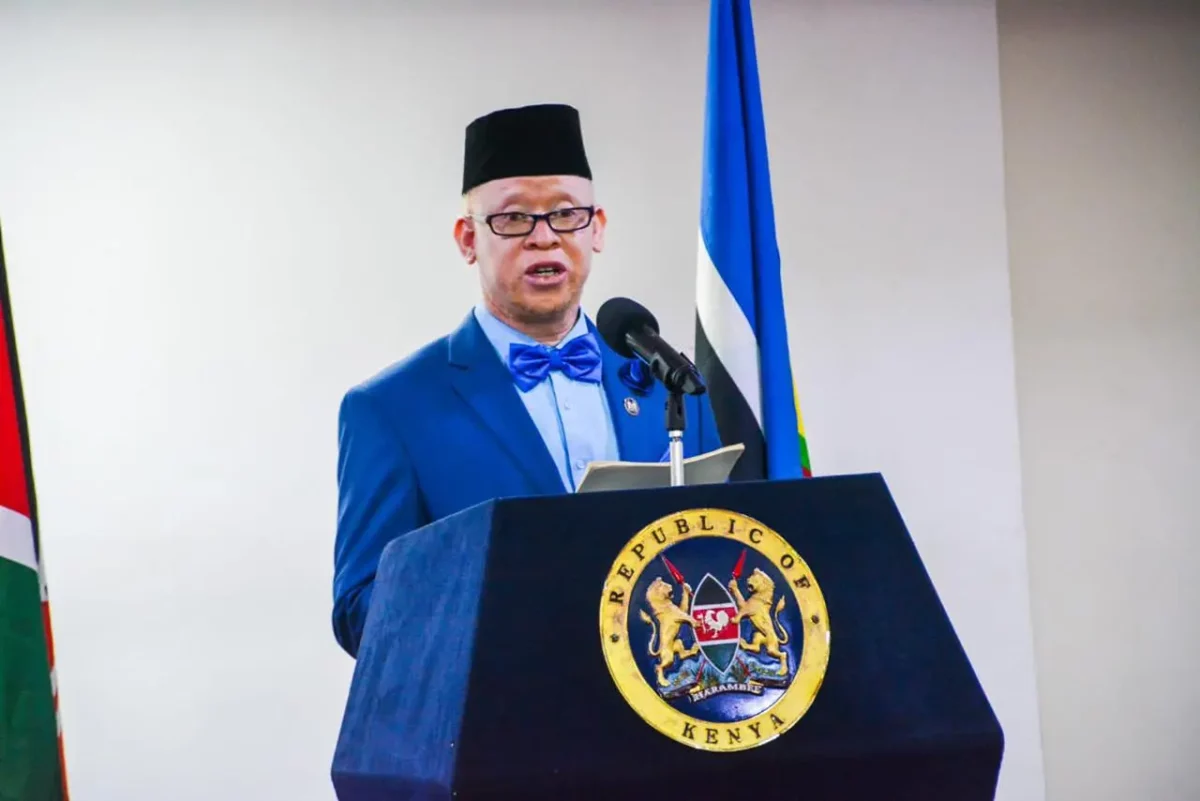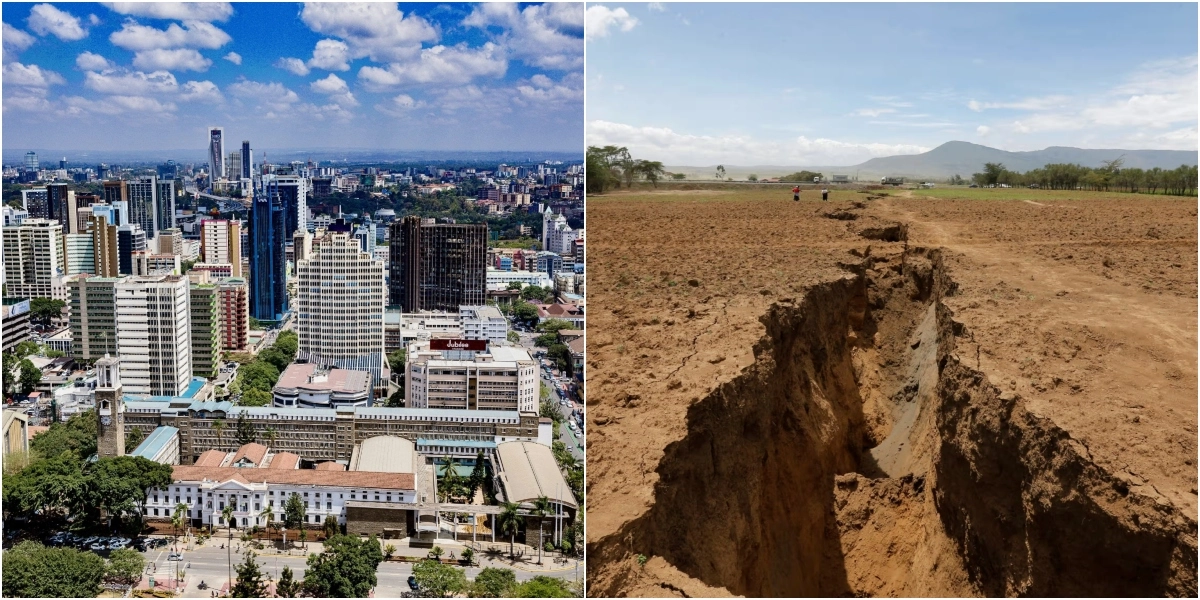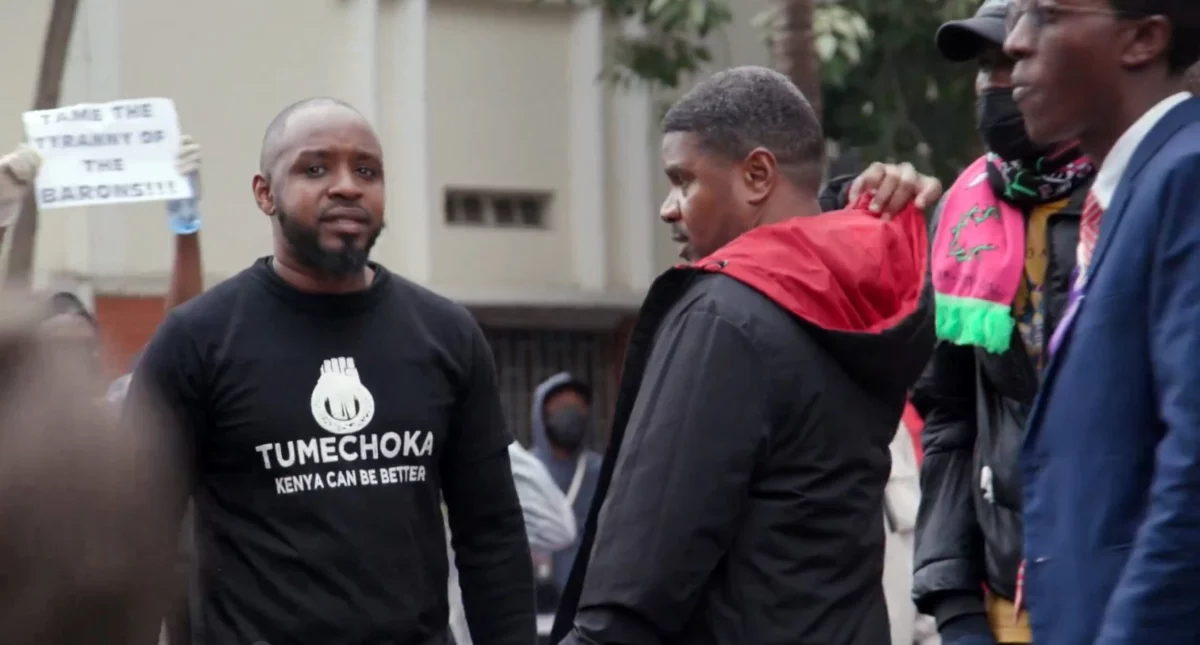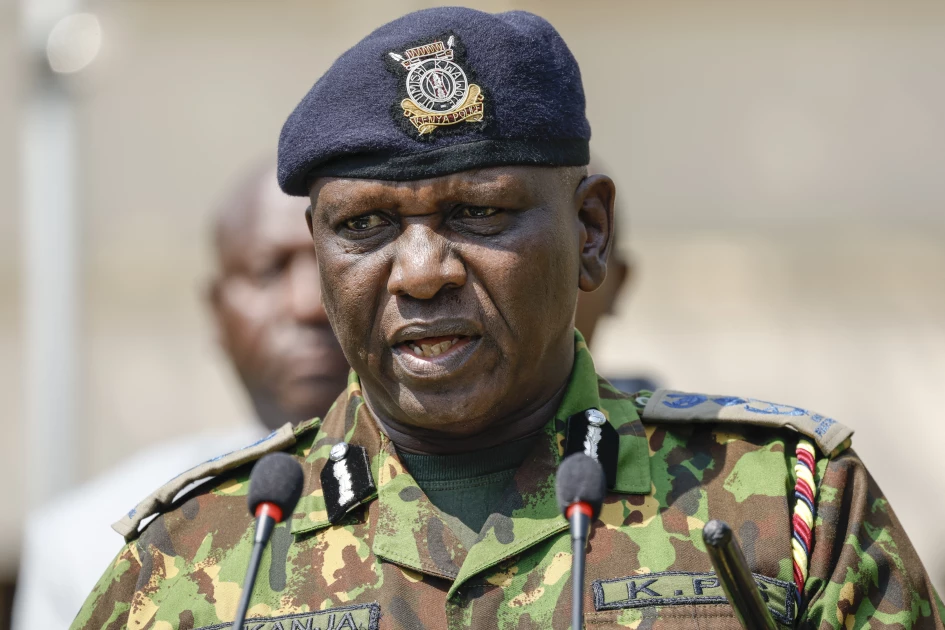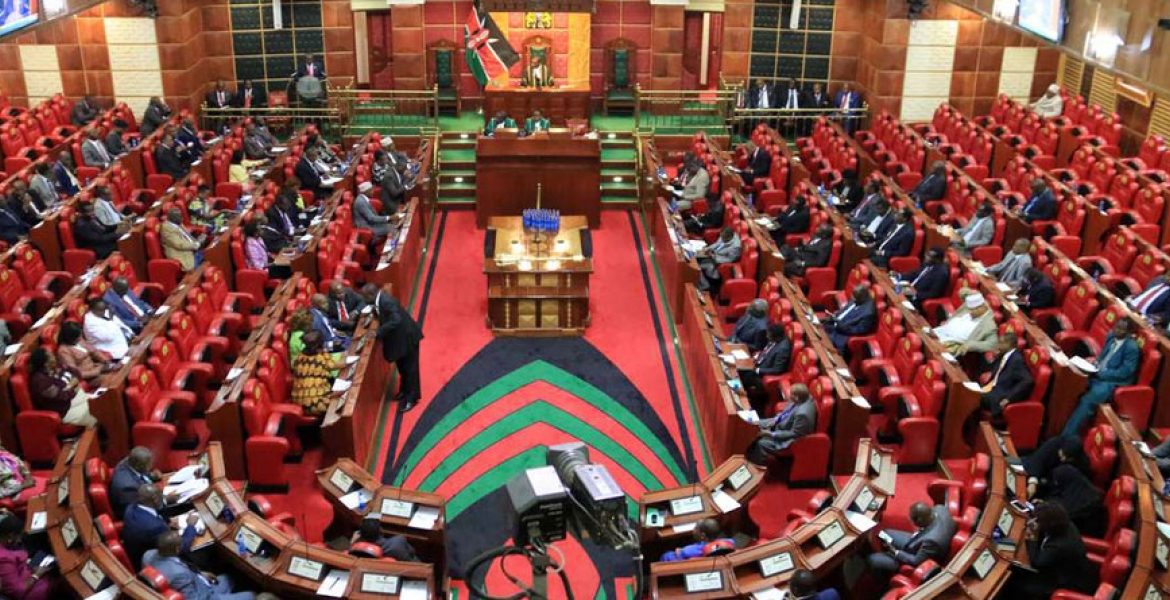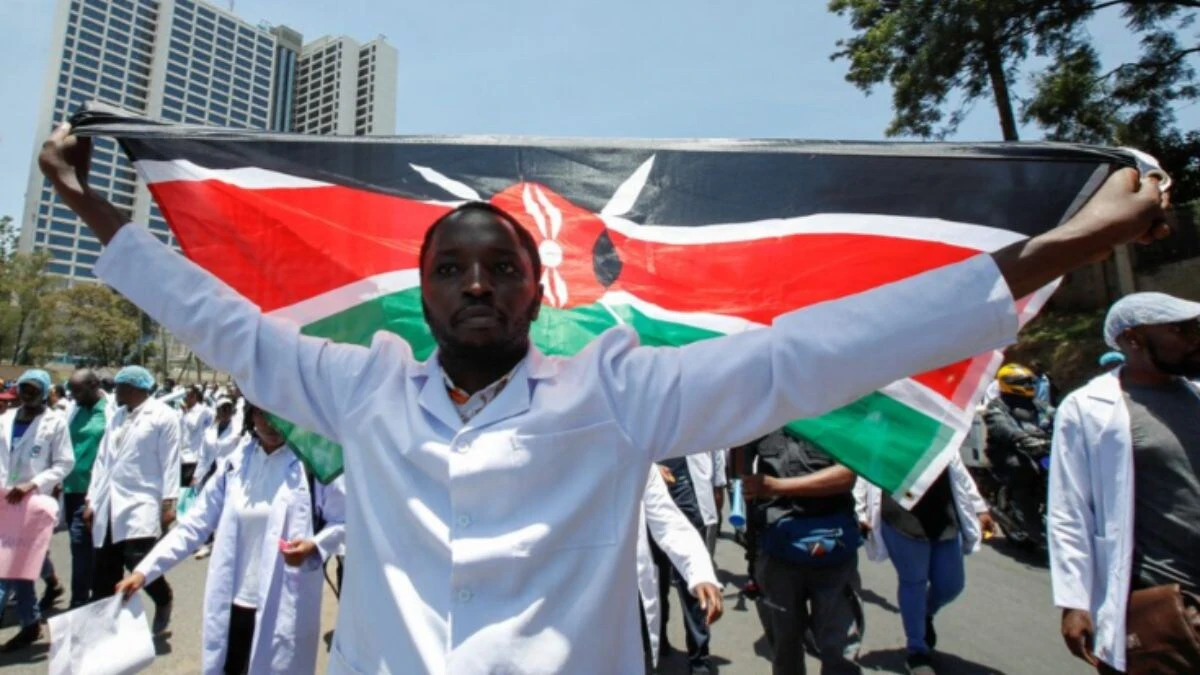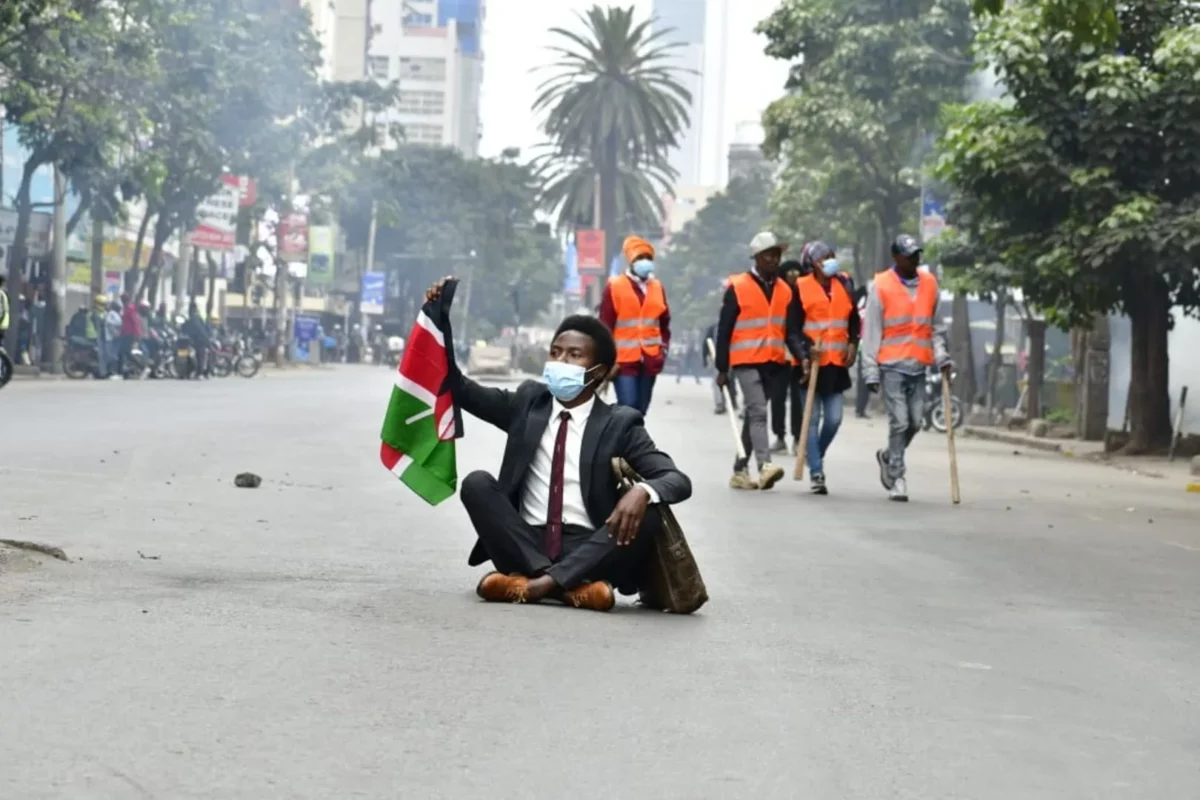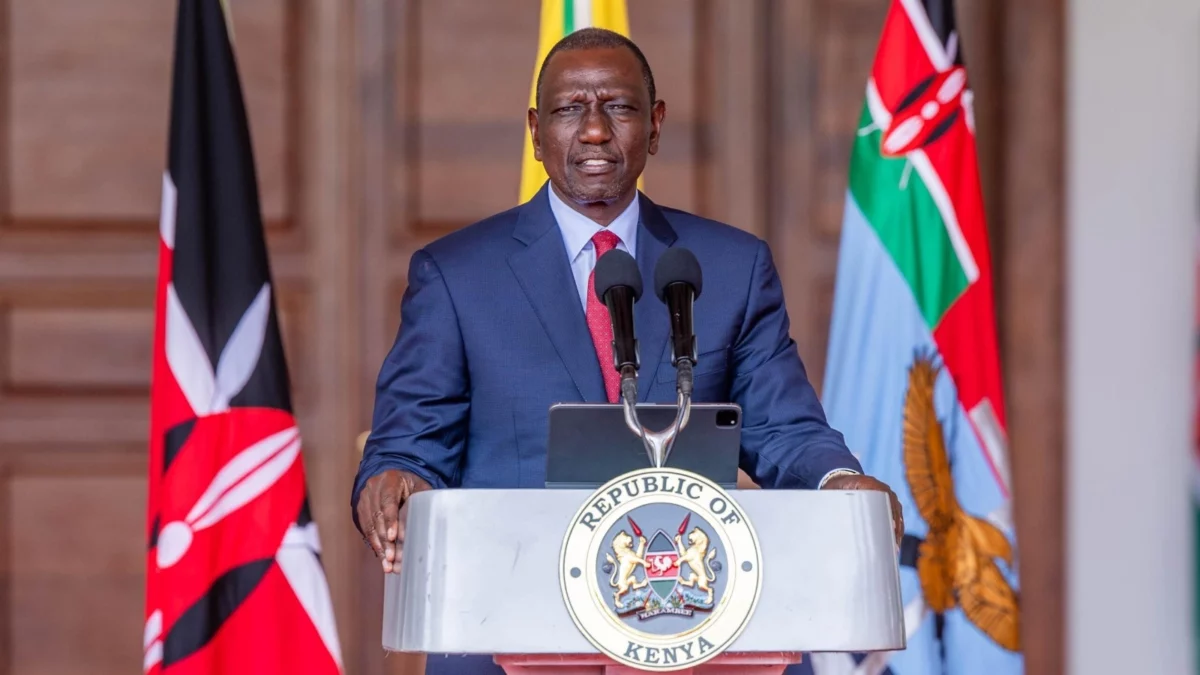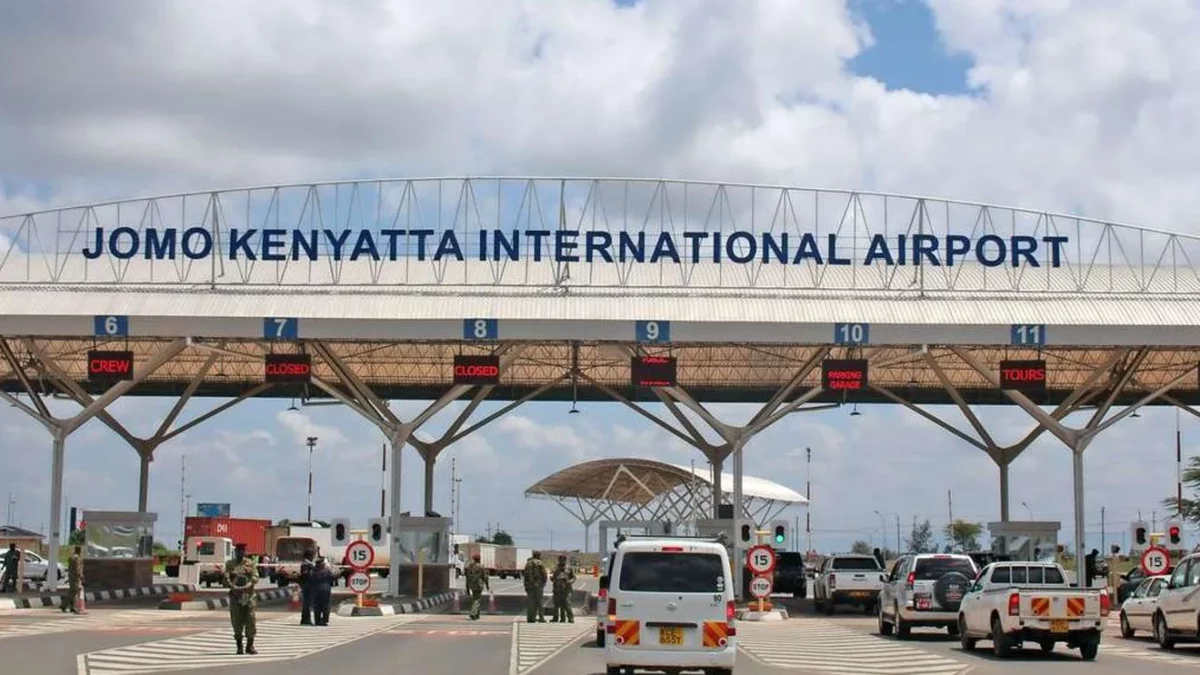President Vladimir Putin signed a law yesterday, officially withdrawing Russia’s ratification of the Comprehensive Nuclear Test Ban Treaty (CTBT) a move that has raised international concerns and deepened the already frosty relations between the United States and Russia.
The decision was swiftly condemned by the Comprehensive Nuclear-Test-Ban-Treaty Organization (CTBTO), the body responsible for promoting adherence to the crucial arms control pact.
Read also: Kenyan Man on the Loose as Woman’s Corpse Found At US Airport
The CTBT, which aims to ban nuclear weapons tests globally, has played a pivotal role in maintaining international security and preventing the proliferation of nuclear weapons.
However, with this latest development, fears are growing that Russia may be inching towards a nuclear test, raising anxieties amid the ongoing conflict in Ukraine.
![Vladimir Putin attends a nuclear attack drill via video conference in Moscow on October 25, 2023. The Russian president has signed into law Russia withdrawing its ratification of the Comprehensive Nuclear Test Ban Treaty (CTBT). [Photo/Getty Images]](https://news.switchtv.ke/wp-content/uploads/2023/11/940-1.webp)
Washington expressed concerns over Russia’s decision, with U.S. Secretary of State Antony Blinken emphasizing that “Russia’s action will only serve to set back confidence in the international arms control regime.”
Moscow contends that its withdrawal from the CTBT is an attempt to align with the United States, which signed but never ratified the treaty. Russian diplomats have reiterated that Russia will not resume nuclear testing unless the United States takes similar actions. Despite its withdrawal, Moscow asserts that it will continue to share information about its nuclear activities as a treaty signatory.
However, there are growing concerns among Western arms control experts that Russia’s decision could be a prelude to a nuclear test, intended to intimidate and sow fear amid the ongoing conflict in Ukraine.
President Putin himself hinted at this possibility on October 5 when he said, “I’m not ready to say now whether we really need or don’t need to conduct tests.” This has raised the specter of a new era of big-power nuclear testing, with significant implications for global security.
Robert Floyd, the head of CTBTO, condemned Russia’s move, describing it as “very disappointing and deeply regrettable.” The CTBT established a global network of observation posts designed to detect the sound, shockwaves, or radioactive fallout resulting from a nuclear explosion. Post-Soviet Russia has not conducted a nuclear test since 1990, and no country except North Korea has conducted a nuclear explosion test this century.
Andrey Baklitskiy, a senior researcher at the United Nations Institute for Disarmament Research, characterized Russia’s deratification of the CTBT as part of a “slippery slope” toward resuming nuclear testing. He cautioned, “We don’t know what steps will follow and when, but we know where this road ends. And we don’t want to go there.”
Subscribe to Switch TV
The approval of the de-ratification law by President Putin, which took immediate effect, underscores the deteriorating relations between the United States and Russia.
The ongoing conflict in Ukraine and Moscow’s perception of Washington’s attempts to thwart the emergence of a new multipolar world order have strained their ties to the lowest point since the Cuban missile crisis in 1962.
The potential resumption of nuclear testing by a nuclear superpower like Russia would undo one of the principal advances in non-proliferation since the Cold War and could have far-reaching consequences for global security.


